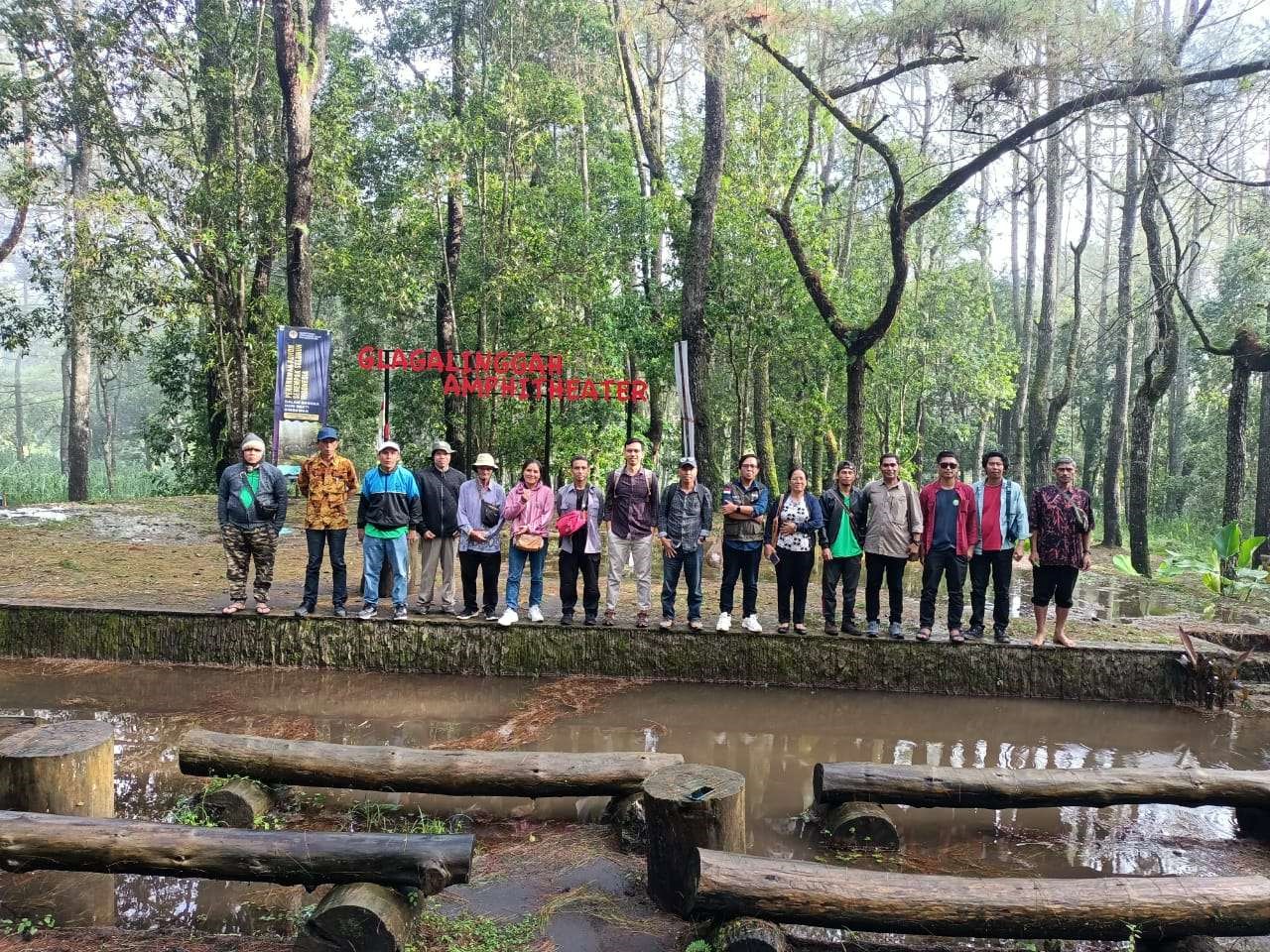
In an effort to help strengthen institutions and increase capacities for the management of customary law communities (MHAs) in Topo Moma Toro, Topo Uma Moa and Ngata Katuvua To Lindu, which are all located around the Lore Lindu National Park, FORCLIME, working in conjunction with partners in Central Sulawesi, including the Lore Lindu National Park Office, the Central Sulawesi Customary Territory Registration Agency (BRWA) and the Karsa Institute, a non-governmental organization engaged in community empowerment, including the strengthening of the people's economy, conducted a study visit to the Alas Kedaton Customary Forest and the Bukit Pohen Forest Farmer Group (KTH) in Tabanan, as well as the Penglipuran Customary Village and the Glagah Linggah KTH in Bangli, Bali Province. The study visit was conducted on 12 – 17 March 2024 and was attended by 12 people representing the MHAs of Topo Moma Toro, Topo Uma Moa, Suaka Katuvua To Lindu, as well as the Karsa Institute, BRWA Central Sulawesi, the Lore Lindu National Park and GIZ. The delegation was well received by the Head of the Development, Utilization, Protection of Forests and Conservation of Natural Resources Division of the Bali Provincial Forestry and Environment Service, Mr. Hesti Sagiri, S.Hut.
Why Bali? From the results of discussions between the parties, it was recognized that the managements of customary forests in Bali have similar outlooks to the MHA in Central Sulawesi. Indeed, there is a cultural conformity between the communities that combines the government with its customary communities, both in terms of uniting government regulations with customary regulations and the division of roles between village heads and the heads of the customary institutions operating within villages. Bali is known as an area that has a strong culture and traditions, and these feature prominently as a part of daily life. Moreover, customary forest management in Bali is based on local wisdom that plays an important role in protecting and preserving biodiversity. These elements were all considerations that were taken into account when deciding the location in which this study visit was to be held.
In the wake of this study visit, several activities will be implemented that will integrate the various learning outcomes from the visits, including:
1. Preparation of a draft Social Forestry Management Plan for the Customary Forests of the MHA Topo Moma Toro and MHA Topo Uma Moa, which will be assisted by the Karsa Institute.
2. Adjustment of the Social Forestry Management Plan for the Customary Forests of the MHA Ngata Katuvua To Lindu, which will be assisted by the BRWA Central Sulawesi.
3. Implementation of a Workshop on the Customary Forest Management Plan for the MHA Topo Moma Toro, MHA Topo Uma Moa and MHA Ngata Katuvua To Lindu, which is planned to be held in July 2024.
For more information, please contact:
Arif Hidayat, Junior Forestry and Biodiversity Advisor
Ismet Khaeruddin, Senior Adviser, focal point for biodiversity conservation Forest Programme 3 and Provincial Coordinator for Central Sulawesi






